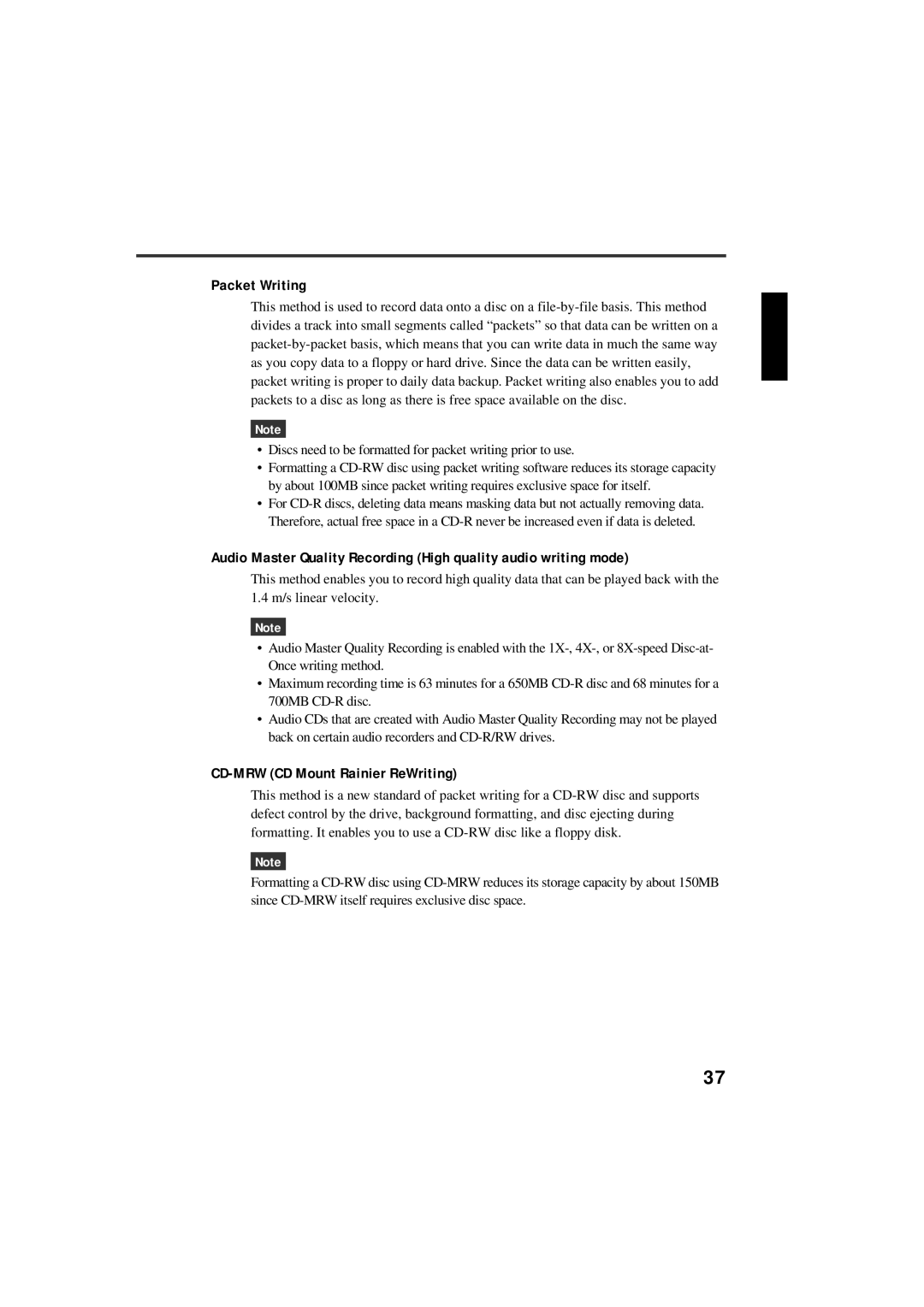Packet Writing
This method is used to record data onto a disc on a file-by-file basis. This method divides a track into small segments called “packets” so that data can be written on a packet-by-packet basis, which means that you can write data in much the same way as you copy data to a floppy or hard drive. Since the data can be written easily, packet writing is proper to daily data backup. Packet writing also enables you to add packets to a disc as long as there is free space available on the disc.
Note
•Discs need to be formatted for packet writing prior to use.
•Formatting a CD-RW disc using packet writing software reduces its storage capacity by about 100MB since packet writing requires exclusive space for itself.
•For CD-R discs, deleting data means masking data but not actually removing data. Therefore, actual free space in a CD-R never be increased even if data is deleted.
Audio Master Quality Recording (High quality audio writing mode)
This method enables you to record high quality data that can be played back with the 1.4 m/s linear velocity.
Note
•Audio Master Quality Recording is enabled with the 1X-, 4X-, or 8X-speed Disc-at- Once writing method.
•Maximum recording time is 63 minutes for a 650MB CD-R disc and 68 minutes for a 700MB CD-R disc.
•Audio CDs that are created with Audio Master Quality Recording may not be played back on certain audio recorders and CD-R/RW drives.
CD-MRW (CD Mount Rainier ReWriting)
This method is a new standard of packet writing for a CD-RW disc and supports defect control by the drive, background formatting, and disc ejecting during formatting. It enables you to use a CD-RW disc like a floppy disk.
Note
Formatting a CD-RW disc using CD-MRW reduces its storage capacity by about 150MB since CD-MRW itself requires exclusive disc space.

